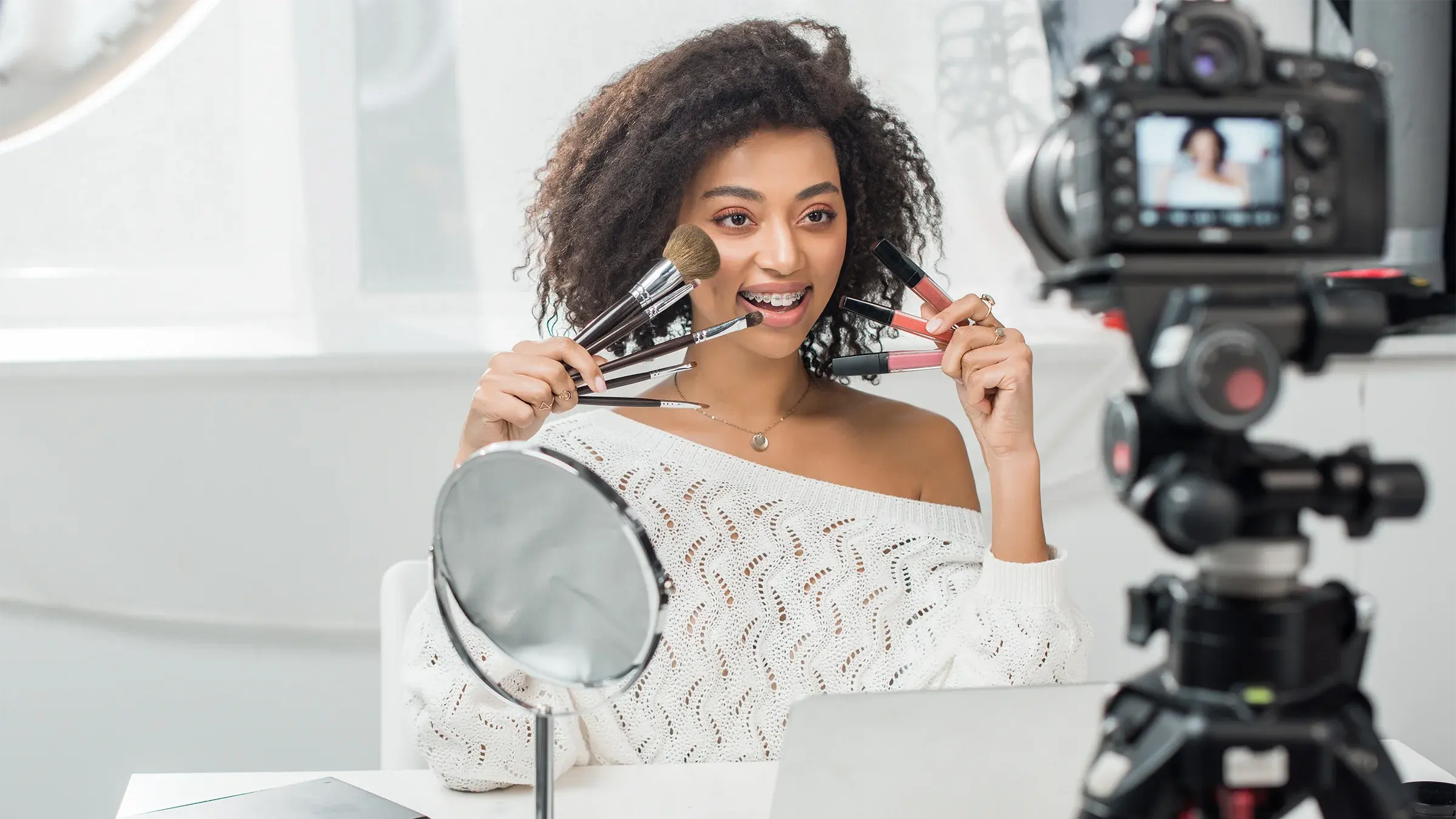Narrator (00:00): Hey you, welcome to Shapers of Possibility - a Taylor Podcast, where we discuss and dissect the integrated worlds of marketing, innovation, pop culture, sports, and all of the possibilities in between.
We’re creating a unique space - for purpose, insightful debate, and growth. Join us.
Nathalie (00:26): Hello and welcome to our Shapers of Possibility - a Taylor Podcast. I'm joined today by Taylor's Resident Health and Associate Director of Marketing and business operations, Liz Zatia. Thank you for joining me today.
Elizabeth Zaita (00:38): Thanks for having me, Nathalie.
Nathalie Wilson (00:40): Of course. So this past year, health and wellness has been a hot topic given the pandemic and people are not only taking care of their physical health, but also their mental health and they're looking at health and wellness in a more holistic way. So what does health and wellness mean to you?
Elizabeth Zaita (01:00):
I think about this a lot. Health and wellness to me is a very comprehensive thing. I think about it in terms of physical health, emotional health, mental, psychological, and even social interacting and balancing interactions with others versus individual or one-to-one interactions. And I think it's a constant acting, reviewing, reflecting process where it's not one day I become healthy and I'm healthy for life. Now things Ebb and Flow as they do in life. We have ups and downs, and I think growing awareness of ourselves, our bodies, our minds, and our emotions is a huge part of health and wellness.
Nathalie Wilson (01:55): I completely agree. I feel like sometimes we tend to just focus on our physical health and neglect all the other parts of health, whether it's social, mental, spiritual, everything. And have you always been interested in health and wellness?
Elizabeth Zaita (02:16): I think so. I mean, when I was younger, I was definitely a sugar fiend. When I was younger, it was definitely time to go to the candy store after school. But my mom was super into health and wellness, always working out, always eating healthy and enjoying it too. But I think really when I was around 14 is when I realized that what I was putting into my body could really impact the way that I felt because I became a counselor in training and we had full access to all of the cans of soda that we could get our hands on. Whereas when we were campers, they only gave us one can every time there was a barbecue. And one day I drank three cans of soda in a three hour period, and I was so sick and I felt disgusting. I started to learn little by little.
(03:19): I didn't just dive into nutrition books at that point, but I think that was a big moment when I realized, wow, this can really make me feel bad. And then it just kind of grew from there. I started noticing what made me feel good, what didn't make me feel good. I had always been really into sports and did a sport for every season growing up. And then when I got into college, I did water polo for about three weeks, which made me so tired that I was too tired to eat. I was so tired after those practices. So I started to lean more toward dance. And I loved it so much. I was in a Caribbean dance group. I was on the step team at two different colleges. I went to Emory and Brown. And then when I moved back to New York City, I just did a ton of salsa, Bachata, and loved it to the point where I realized, wow, this is my thing.
(04:24): That something that fulfills me in a lot of different ways, physically, emotionally, spiritually, I felt connected to my inner creativity. So that was a huge turning point for me in my physical health. Cause I felt fulfilled in a way where I was able to more regulate what I was eating after that. Because throughout college I did that whole freshman 15 thing where I'm studying, I'm eating, I'm studying, I'm eating chocolate, I'm drinking coffee, I'm studying. And although I was very physically active, I think there was a lack of emotional or spiritual fulfillment that I was looking to fill with food and dance filled that for me. So it was a really beautiful experience over those three to five years when I really got deep into it.
Nathalie Wilson (05:17): Interesting you say that because I had a similar story in terms of my path to health. I remember when I was maybe 14 or so, I was in high school, and then our school cafeteria kind of did a nice little revamp and they had a pasta bar. And I love, love pasta. I ate pasta probably every single day. So obviously for nutritional health, it's not the best thing to do. But at the same time, it kind of balanced out a little because I was very active, I was playing tennis and soccer, and I was always doing sports after school pretty much every single day. So it was fine. But then once I got to university, I wasn't as involved in sports. I still had bad eating habits and I wasn't exercising either. So then my health just went down completely. And then I moved out of my dorms and then started living with my friends.
(06:03): And then that's when I started to become so much more health conscious. I was just like, I can't be eating this every day and then I'm buying my own groceries. Oh, maybe I don't need to buy all this meat and everything, or eat pasta. So I started eating better and being more cautious about my health. And then started working out as well, got myself a trainer and all that fun stuff.
And then I started getting very into it and it was really good. And then after that, I think it was my last semester at MCGI, I took this class called the chemistry of Food. And we basically learned everything that to do with nutrition, but backed it up with a lot of science and the proper chemistry because we learned about the chemistry of fat and how to affect your body and learning that it was such a great class to take because it actually understood nutrition on a different level, the chemistry behind it. So it was cool.
Elizabeth Zaita (06:59): Yeah, that's something that I've been getting more and more into, especially at the start of the pandemic. I delve deep into that chemistry of the food, how it impacts both our gut health, our energy levels, our emotions too. Initially, I think it's easy to just think of food as having a physical impact on us, but it has a very intense, even emotional impact. The main thing that I think of in terms of holistic health is developing self-knowledge and really paying attention to your own personal reaction to the different things that you do. Whether it be these outside influences, outside factors, maybe an environment that you're in or internal things you're putting in your body and how your body is digesting them, whether they're your emotional things you're putting in your body or physical food, things you're putting in your body. And after a few things that I learned at the start of the pandemic, I studied a lot of Ayurvedic health, which is a form of holistic health that originates from India.
(08:09): And a few of the key things I learned was, this might sound gross to some listeners out there, but the health benefits of starting your morning with celery juice, literally putting it through a juicer and drinking straight celery juice. The guy I was working with also had me drink half an hour after the celery juice, cilantro juice. So each of these things are very collating, which I honestly hadn't even heard of that word before. And he explained to me, and then I looked further into collating. It's the process of pulling out certain impurities in your system that the body benefits from that support from the celery, because so much of what we eat now is pre-packaged. Also a lot of vitamins or drugs we might need to take for our health has a lot of actual hard metals in it, like teeny, teeny, tiny little metals from just the manufacturing of these things.
(09:11): And over time, the body accumulates these hard metals in its system and that interferes with the proper absorption of nutrients that you are putting into your body. So the celery juice helps to pull those out. It's kind of like the sponge of the hard metals and picks it up and gets it out of you. So that was really cool to learn about. And another thing that this health practitioner I was working with told me was, if you hate doing X, Y, Z things that I'm suggesting to you, don't do it because your internal attitude toward what you're doing is just as important as the food that you're eating. So if I'm sitting there like, oh, this is disgusting, I hate this. I'm sending these negative messages into my body. And that also impacts the way that your body receives things. And that reminded me of one of my instructors of this high performance trading meditation breathing practice I do called the DeRose method which tells me to always have a positive conversation with your body.
(10:26): Your body does not know the difference even if you're joking. But it's important that when we work out, when we move throughout our days to also pay attention to that internal dialogue of how we're talking to ourselves. And even though it feels like such a tiny thing to do during a physical training class, the more you practice during that physical training class, the more it carries through to other aspects and other moments in your day. Positive body talk is really impactful throughout the rest of your day also. And then throughout my workday, I'm saying, wow, instead of like, oh, I have so much work. I'm never going to get through this. All I'm saying, wow, I just did that thing that last week I was really procrastinating on. But this week I felt a little bit more on top of it. I feel a little bit more confident. Just noticing those little things and having some amount of self-forgiveness too has been a more recent focus of mine.
Nathalie Wilson (11:30): As you keep on talking to your body in a positive way, it's good. It helps a lot with not only your own physical health, but everything else that goes on throughout your day, whether it's work with your friends or with your family or anything of that sort. But apart from juice to have in the morning, do you have any other useful tips to better your health and wellness?
Elizabeth Zaita (11:56): I mean, yeah, some of the things are things that you hear a lot, which is to stay hydrated. One of the things I learned as a teacher was to keep water nearby and a big jug, because it could be hard once you start your day having balance. Yeah, sure, I drink cel juice in the morning, or I love fresh berries and this and that. And at the same time, if I'm craving an ice cream, I'm going to get an ice cream. Or if I'm craving a cheddar cheeseburger even I'm going to do it because it's not about, I was talking before about that internal attitude. It's not denying myself all of these things, but it's really about developing a balance. And I think we disconnect from our bodies a lot, especially starting with the industrial revolution and especially living in big cities. In part it's a survival mechanism to disconnect from our bodies and our parts, but I think we need to reconnect that brings initially pain, and sadness as we work through those scars and heal, but ultimately leads to a fuller life, I think.
(13:16): And then going back to physical breathing through the nose is really, really beneficial. In and out through the nose. I know there's a lot of yoga classes out there that say in through the nose, out through the mouth, the type of yoga that I practice, again, it's the DeRose method or because there's a lot of people that practice throughout South America and Europe as well. But we emphasize breathing through the nose because those tiny little hairs in our nostrils help to help balance both the temperature of the air going in and out and the speed of the air going in and out. And it also helps when we breathe through the nose, our body produces more nitrous
oxide, which helps to defend against viruses, which are on people's minds a lot at this time. So those are some three key things. Balance nose breathing and listening to our bodies.
Nathalie Wilson (14:17): That's some very useful tips, especially from the nose breathing. I didn't know that about viruses. So very helpful tips. Thank you. Please answer our last question. Where do you see health and wellness going in the next 10 years from a societal perspective?
Elizabeth Zaita (14:34): So some of the things I see are people are, I think, getting more, and again, I'm coming from the perspective of a Northeasterner, New York City dweller. So my perspective is definitely skewed. So with that in mind, I do see people going back to farming, like urban farming, wanting their little patch so they can grow, even if it's just a few fresh tomatoes or something like that. People are definitely nationwide talking more about holistic health, both personally and professionally and quality of life, and how even at their job, they can feel healthier with that work environment. Well, I hope for less fad diets, less short term and more of this integrated holistic wellness that we've been talking about today. I don't know if it's going to happen, but I do think that there's been much more consciousness around the impact of the food and drink that we put into our body and exercise. It's definitely something that I see on people's minds more often. It's less and less that you're having a steak and potato dinner every night at someone's house. I'd love to look more into that question, actually. It's a great question.
Nathalie Wilson (16:03): Yeah, yeah, I agree. I think that I have to also admit that when I first moved to America, especially just coming from Switzerland, my body had a hard time adjusting to the food here because it's very processed and has all these hormones and stuff in there. Whereas in Switzerland, most of the things you get are really farm to table. So that was a change. But just even speaking to my friends, during the whole pandemic, they were all working from home. So a lot of my friends have these little farms at home, basically growing small things from basil, like mint to onions at home, and they're just moving towards that. And then this, again, I think the pandemic was a bit of a catalyst or push that people needed to take care of their mental health. And so people, I think even just my friends and myself and just more willing to go to therapy or try alternative therapies as well, or anything like that sort. So it just seems like it's looking hopeful. Cause I think that a lot of people are now prioritizing their health more than they did before.
Elizabeth Zaita (17:05): Yeah, for sure. And I think that point about mental health, especially during covid and constant lockdown situations and socially distant and everything, it's a big concern.
Nathalie Wilson (17:16): Well, thank you so much for joining me today. This was a really, really interesting conversation and I learned so much. Awesome. Yeah, I'm super excited to do this again.
Elizabeth Zaita (17:28): Yeah, thank you. Thanks for having me. I love talking about these things. So anytime.
Narrator (17:33): Well, that wraps up this episode of Shapers of Possibility—a Taylor Podcast. To learn more about what we do at Taylor, you can find us at TaylorStrategy.com.
Looking for more episodes of the podcast? Find us wherever you stream stuff—we’re on iTunes and other major streaming platforms. And be sure to follow us on Instagram and Twitter: at Taylor Strategy. Thanks for stopping by and tuning in. Peace.






.jpg)


.png)
.png)
.jpg)
.jpeg)
.jpg)

.jpg)
